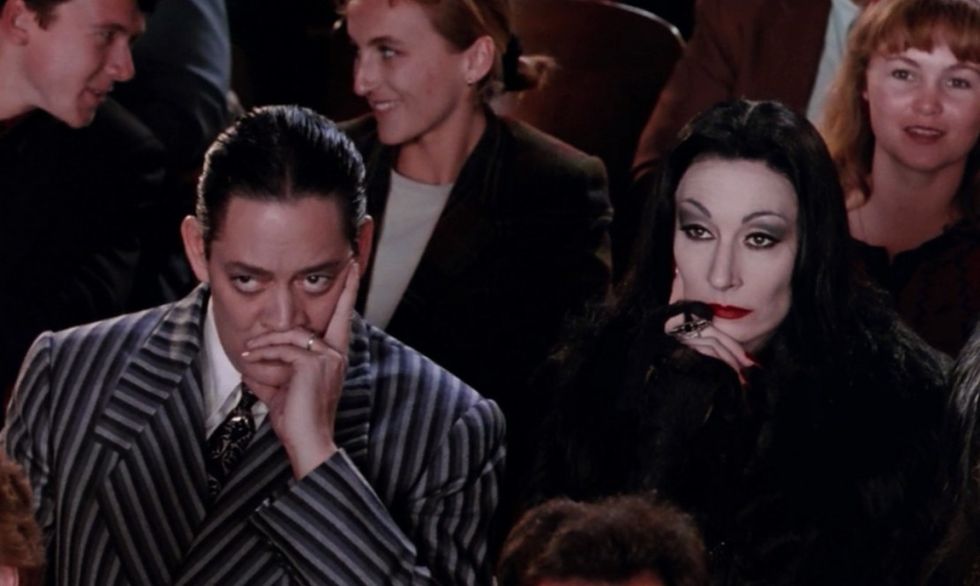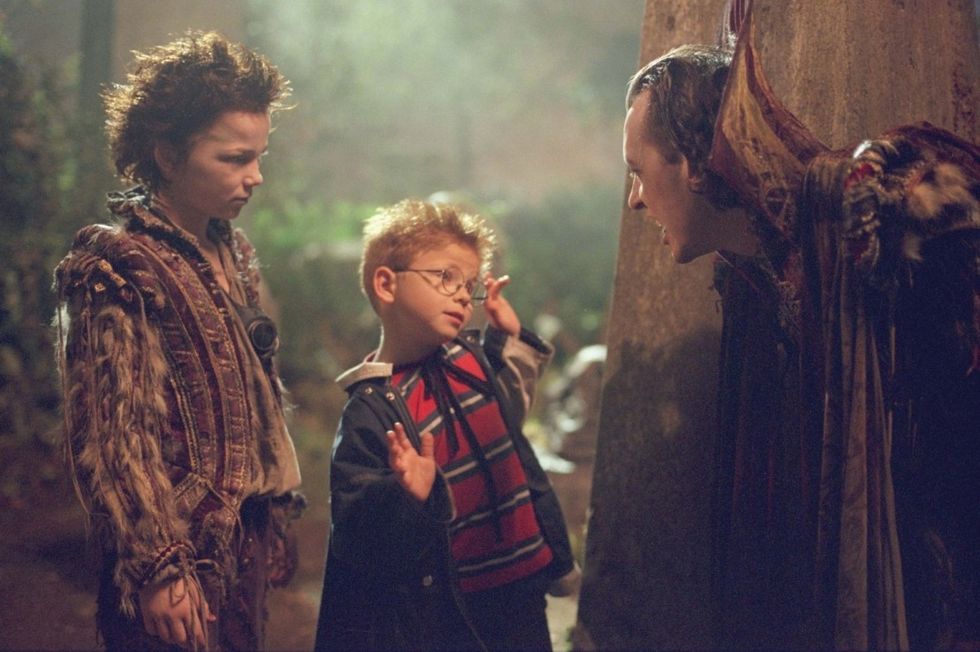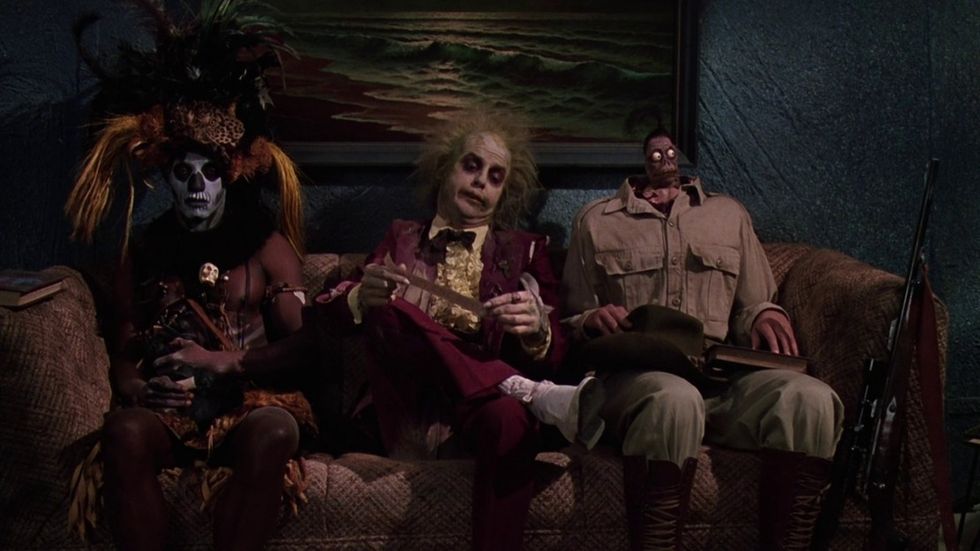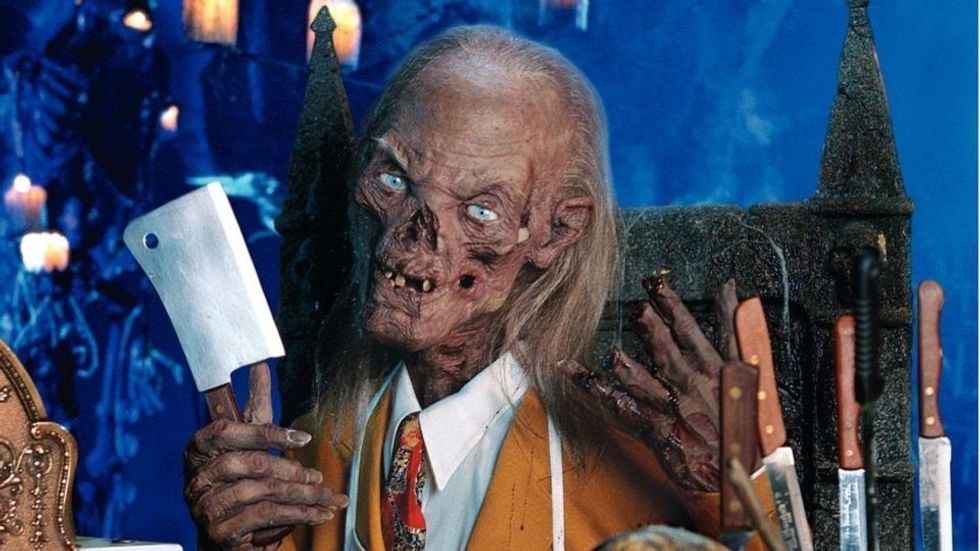7 Invaluable Tips For New Screenwriters from 'Beetlejuice' Scribe
As an experienced screenwriter, story consultant, and teacher, Larry Wilson has picked up plenty of tips and tricks to hand down to new writers.

Getting started as a screenwriter can be one of the most difficult aspirations in Hollywood. Between figuring out what to write, how to do it, and so many other mental roadblocks, some potential screenwriters never even discover how to start, let alone find success. Among the many who once stood in that position is Beetlejuice writer Larry Wilson, who once nearly found himself among the dropouts instead of the critically acclaimed.
Though Beetlejuice, one of the great quirky, original comedies, is best known for launching the careers of greats like Tim Burton and Winona Ryder, it all started in the mind of Larry Wilson. But that story nearly failed at its conception, until Wilson buckled down and learned how to confront the challenges of being a first-time screenwriter.
"It's not you sitting with a metaphorical beret in a metaphorical loft waiting for inspiration to drop. It's a job."
Wilson had his fair share of bumps in his path as a screenwriter and in developing Beetlejuice, but now Wilson is one of the preeminent names in the field. With credits ranging from The Addams Family to Tales from the Crypt, Wilson's zany supernatural world's have become a staple of the horror/comedy sub-genre.
Wilson provided heaps of advice in an extensive interview he gave to the folks over at Film Courage, paying particular attention to how first-time screenwriters can get themselves going and how to create personal stories. From engineering writing habits, to pitching, to finding confidence in yourself, watch the whole thing here or read our seven most important takeaways here:
1. Treat writing like a job
For many aspiring screenwriters, it all starts with the simple act of sitting down and writing. "You need a process," Wilson says. And for him, it didn't take long to learn that the best way to do that was to treat writing like a job. When he and Michael McDowell first sat down to write Beetlejuice, their partnership quickly hit a bump. After a couple of weeks, "Michael sat down with me and said 'this is not working out. You're just sitting around waiting for inspiration. I'm not going to wait for you to be inspired.' And that changed my life as a writer," Wilson says. McDowell told him "If you're going to work with me, look at it like we're working in a bank. We get in at 9, we write until lunch, we write again until 3:00, then we do whatever business we have to do."
"It's not you sitting with a metaphorical beret in a metaphorical loft waiting for inspiration to drop. It's a job," Wilson says. And that dialogue changed everything about Wilson's approach. It allowed him to understand that you can't be a writer if you don't write. There's nothing more important than that.

2. Don't be a perfectionist
Among Wilson's many qualifications as a voice for aspiring writers to listen to, his resume includes an extensive history of teaching. One of his defining moves as a professor is to show up on the first day and make up a statistic. He says to the class "98% of you will fail. You'll fail because you'll never finish your script." It's a made up number, but the message rings true. Many of those aspiring screenwriters will remain aspiring simply because they never actually get around to writing. And as Wilson claims that one of the top culprits stopping his students is perfectionism. "New writers have that sense of perfectionism and that sense that they have to get it right the first time. Allow yourself to fail the first time, but to tell the story the way that it emerges from you. And if you're a storyteller, the story will emerge. You have to believe you're a storyteller."
"One of the great sages with a view of the human condition, Jimmy Page from Led Zeppelin, said 'I never want to be respectable, I always want to be responsible.' I'm responsible because I will get my ass to my computer and write. The hardest job anybody teaching in creativity has is to convince people to get out of their own way. And my way of doing that is to say "Today, students, I am a hot mess, but I wrote for four hours."
"If you're a storyteller, the story will emerge. You have to believe you're a storyteller."
3. Write what you feel, not what you "know"
One of the adages that most bothers Wilson about screenwriting is the phrase "write what you know." He never understood that phrase, stating, "I've never written what I 'know.' I write fantastical worlds and supernatural stories. A first-time screenwriter should write what you feel and what's in your heart. After looking back on my work years later, I realized I had a theme. Almost everything I had written was about broken families who are put back together in some bizarre way—because I came from a broken family. No matter how weird the worlds get, you've got to write something that you feel and have a passion for. Otherwise, why do it?"

4. You don't need an outline, diagram, or beat sheet
If you're a storyteller, then you can tell a story. That's what comes at the core of Wilson's message. If an outline, or a diagram, or a beat sheet can help you, then go ahead and utilize the tools you like, but Wilson emphatically states that you don't need those things to find success as a screenwriter. "There is a huge business in teaching screenplay structure," he says, and "this structure business, it's a business. Those structure diagrams can assist you, but they can also be an absolute cage and trap you."
For Wilson, he doesn't need a structure outline. In his mind, it all starts with an idea. "With Beetlejuice for instance, the idea was a psychedelic ghost comedy. When I start, I kind of know the beginning, and I kind of know the end. The middle is the great unknown. But it all begins very internally; it's an instinct, an idea, a character, a situation."
Instead of plotting everything out via an outline, Wilson subscribes to the Stephen King method of writing. "He always says it's 'what happens next.' It may not come easily, and there might be a lot of bad What Happens Next before you find the right What Happens Next, but it'll come. There are so many screenwriting programs out there that say they can tell you what happens next, but they can't. Only you can tell what happens next.
"Structure diagrams can assist you, but they can also be an absolute cage and trap you."
Wilson even provides a brilliant anecdote about an instance of finding out What Happens Next while writing Beetlejuice. "There's a scene in Beetlejuice where the ghosts, Barbara and Adam, have died and they're trapped in their house now, but Michael and I had no idea how to get them into the afterlife. We had done a very good job of sticking them in the house with what felt like no exit. I would vomit out ideas and Michael would just shoot them down. 'No. No. No. No.' And I was coming up with more and more convoluted ideas about how to get them out of the house, and I'm trying to bring out my supernatural chops, and finally, I got really angry with Michael, and I said 'What do you want them to do? Draw an effing door?' And I just said it because I thought it was the stupidest idea imaginable. And he just started laughing. And I started laughing. We said 'Yes, that's exactly what they should do.' Simple. But it took all of the convoluted stuff to get there."
Ultimately, you can't just refer to a screenwriting manual to give you the answer when you're stuck. The structure can't tell you your story. "You will write and write and write, and you won't think you've found it, but if you keep at it and you keep writing, there'll finally be that epiphany moment where you figure out What Happens Next."

5. You don't need film school, either
Wilson did not go to college. Coming from a unique background can give you a huge leg-up when creating your stories, and Wilson talks about how his passion for film was what really separated him. "I was a studio executive at Paramount, surrounded by Harvard grads. I was up against my own inferiority complex sometimes, having barely gotten out of high school, but one day after I had been completely creamed during a development war with one of these Harvard grads, Jeff Katzenberg took me aside and said 'Larry, you need to learn to be a straight player in a crooked game. You're sitting beside me here because when you read a script, and you love it, you're going to make sure that everyone else loves it too. That's why you're valuable to me. Stop trying to be a studio executive; be a guy who can read a script, or watch a movie, and get excited the way you get excited.' And that was a huge shot of confidence. Just be yourself and use your passion and make that your calling card."
While studio executives might not always be perfectly aligned with screenwriters, the message still stands, and ties together perfectly with the idea that you need to "write what you feel." Embrace what makes you unique and embrace what you know. Craft your stories that you can tell and be yourself.
6. Be willing to listen
Pitching can often be one of the most difficult aspects of being a new screenwriter in the business. And Wilson once shared those fears all screenwriters have. "Sweaty armpits and always worrying that everyone would hear me stammering," Wilson says, "There was a lot of shyness I had to overcome. But there's a great philosopher who's been a touchstone for me, Alan Watts, and he once said 'Don't be serious, be sincere.' And that made pitching easier. Go in and do your best and tell them a story you believe in."
Wilson adds, "You contribute to the success or failure of your pitch meeting. You contribute by coming in with an idea that you've actually thought through and that you have passion for. But you also need to be willing to listen. It's a conversation. You should've prepared and be able to do your story justice in the room and answer questions. And when an executive has a 'but,' don't get defensive. That's a huge mistake. Don't assume that you know more than the person you're speaking to, but at the same time, be strong and know when you need to dig in your heels when people are changing your story so much that you don't even recognize it anymore. Then you need to say thank you for the meeting and leave. But engage in the conversation. It's a part of the business. It's a part of the game."

7. You can make your own career happen
For a time, Wilson stepped away from his role as a teacher. Students constantly asked him how to get a movie made, and he never knew how to answer. He didn't want to provide a false sense of hope. But when the digital revolution hit the film industry, he found himself capable of answering that question. "You can make a movie on your cell phone now. There is no excuse for you not to be able to make your movie anymore," he says.
The most important thing you can really do is "put yourself in every possible, conceivable place you can think of. You talk to anyone who you think might be able to help you and maybe that door will open for you. But if none of that works, make your own movie! It's a great place to be, but it's a scary place for people to be. If you can't get your stuff seen, if you can't get a pitch meeting, then shoot a ten minute short and put it on YouTube. Take your career and your life and put it into your own hands. Stop waiting for these gatekeepers to give you permission to be a filmmaker. It's an answer that people don't want to hear, because it puts all the responsibility on them. It makes them have to do something in public and perhaps fail. Anyone can make a movie now, and that means there will be millions of bad movies, but make sure yours is a good one."
Source: Film Courage













